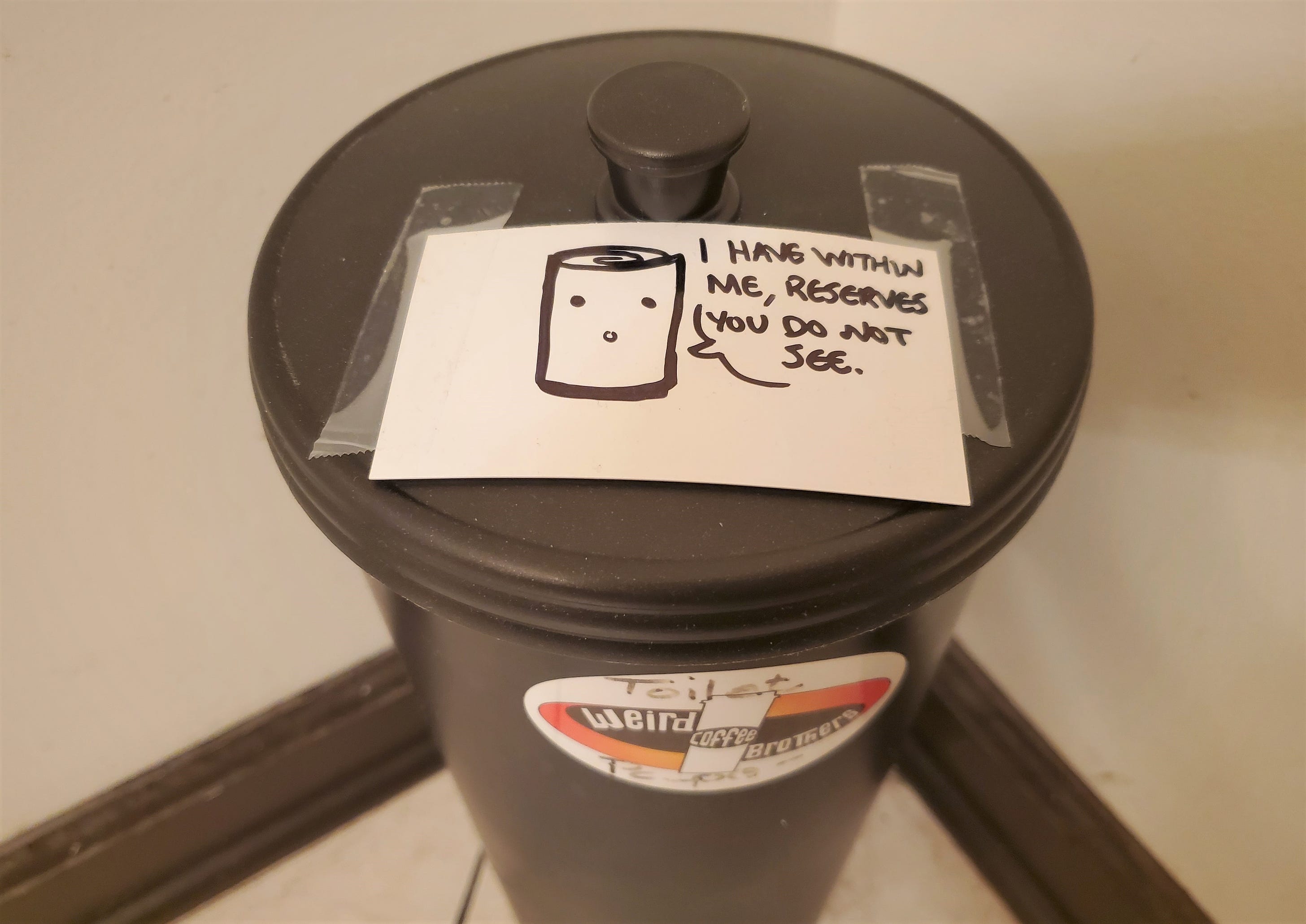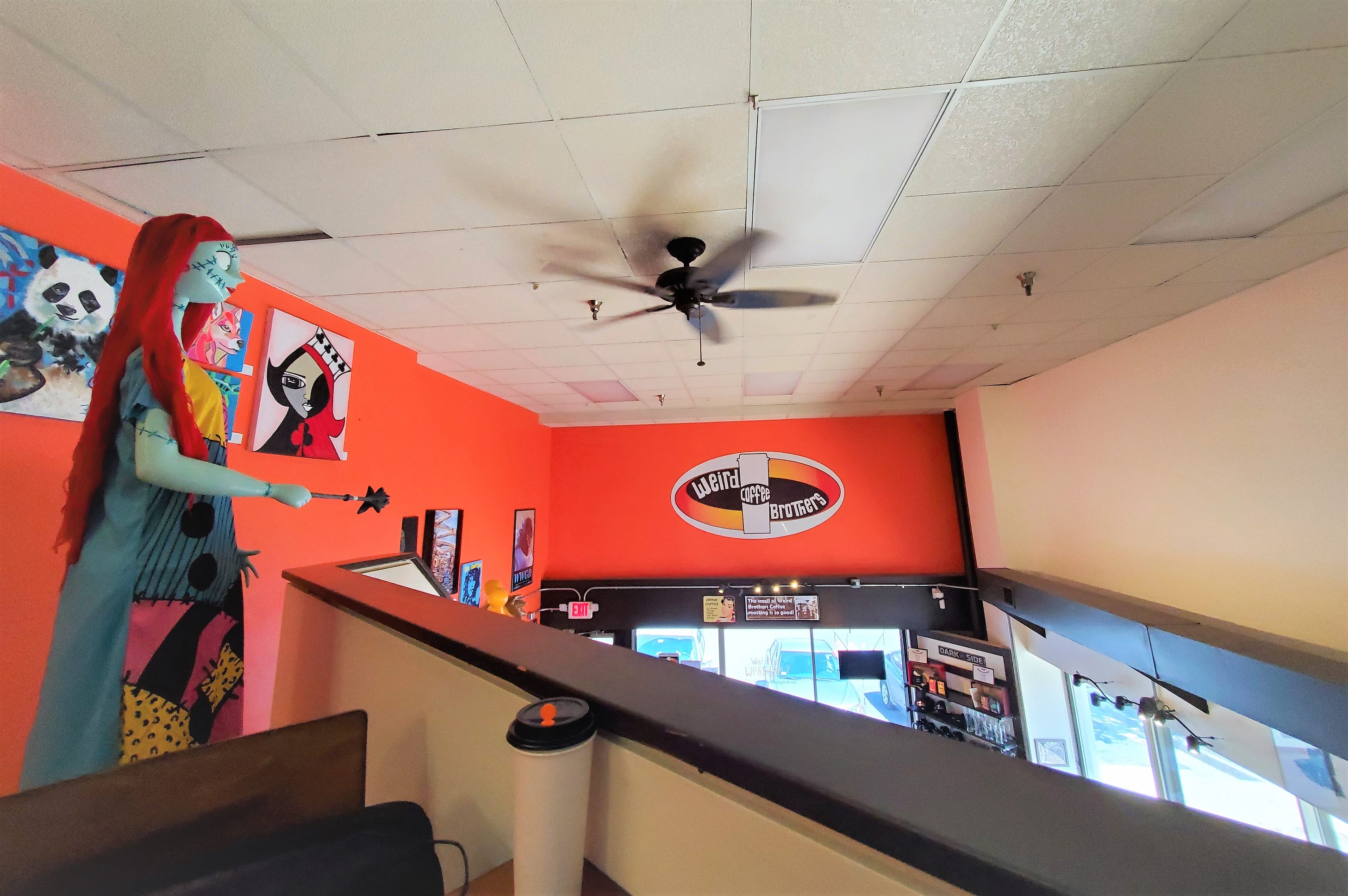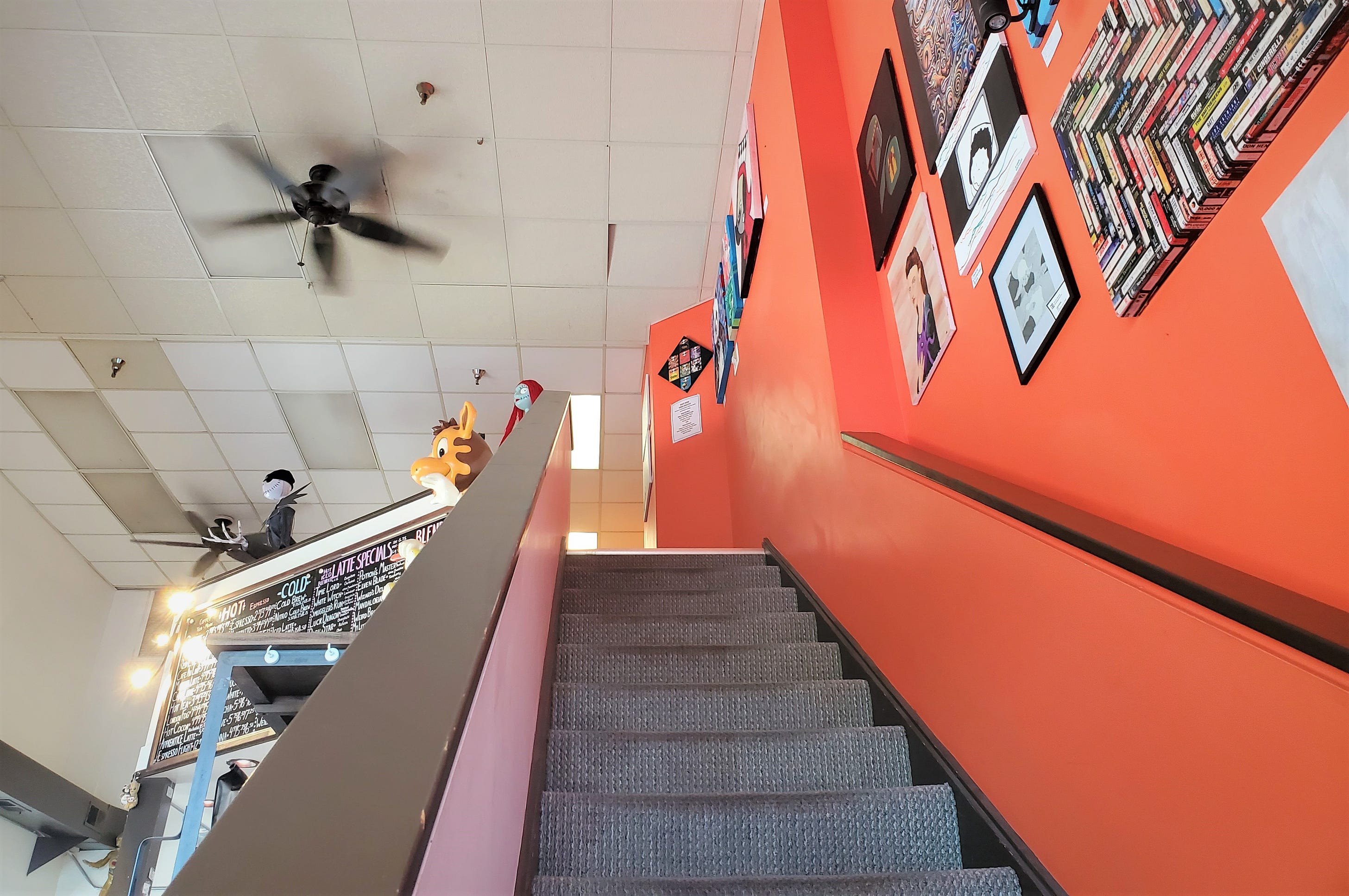The Deleted Scenes - Being a Part of It
The other day, I changed the toilet paper at my favorite coffee shop. It was a quick, obvious, almost amusing thing to do, given the toilet paper storage container they have: It’s always a little delight to climb up to this place’s second-floor seating area, which overlooks the first level. There’s a little utility closet up there with a “door” made of burlap coffee sacks. There’s artwork and various pop-culture memorabilia all over the walls. The way up to this loft area is a staircase that looks like it’s from a house. The bathroom is also outfitted like a residential bathroom, rather than a commercial one. This place is small. But it feels big and homey at the same time. The upstairs has this lovely nook-and-cranny feel. Some of this is an aesthetic. But it goes deeper than that. Its quirkiness and granularity is, I think, a product of being a small, independent business. It’s in an industrial/commercial park (near a brewery, catering place, gym, and other businesses that are here either for zoning reasons or for cheap rent.) Chains want conformity and uniformity; they don’t want amusing handwritten signs on the toilet paper storage container, or nooks and crannies, or odd locations. The predictability of the chain, and the texture and interest of the independent business, are not just different; they’re like acidic and alkaline. You can’t have both. What’s interesting to me is how the small business invites you to be part of it. You’d feel like a bit of a chump changing the toilet paper at Starbucks (if you could find the toilet paper). A faceless “they” is supposed to do that. The remoteness of the chain business encourages detached complaining over a feeling that the store and its customers and its employees are all part of something shared, something that exists because of all of us. Sometimes, conservatives make a point like this about government. Government is big, remote, and faceless. It doesn’t form relationships, it just dispenses money. It encourages a lack of appreciation and gratitude, and a kind of passivity. To the extent that this critique is true, it is really equally true of the bigness and remoteness of suburbia and the large-scale, car-oriented chain retail that goes hand in hand with it. We are right to lament the loss of community institutions, small businesses, and neighborhoods where everyone knew each other and looked out for each other. But the physical context of most of American life today works against all of those things. Now, a lot of these trends are more recent than suburbia itself, and many researchers are skeptical of this whole line of analysis. But I wonder if these trends did not appear earlier only because it was not until the 1970s or 1980s that we began to have a critical mass of multigenerational suburban families: that is, people who did not move from “the city” and bring their urban habits and outlooks, but who were born in the suburbs—which, over the decades, became increasingly less traditionally urban in their scale and form. I do not think land use explains everything. But it is the context of everything. When we bulldozed cities, built monotonous, impersonal suburbs, and oriented commerce and life around the car, we unbuilt the physical context that helped us to form community. And modern zoning prohibits much of the sort of urban fabric that underlaid this more communitarian version of our country. At the time it seemed like a good idea. So often, we talk about these things—virtue, responsibility, work ethic, forming community—like they happen in a vacuum, unaffected by their context and surroundings. As if it would almost be wrong to make these things easier, because that would deny or deprive people of agency. On one end of this argument is the idea that humans are lab rats, and that human behavior is deterministic. But on the other end is the notion that human behavior exists independently of any context or outside forces at all. I think it is fundamentally conservative to acknowledge our weaknesses, our susceptibilities, our responsiveness to incentives. To go back to my little anecdote: replacing the toilet paper is a considerate thing to do, all things being equal. But one approach to doing business makes it a more pleasant and natural task. So we should do and build more of that. Related Reading: Fifty Million Private Realms Might Be Wrong A Different Take on Suburban Parking Lots Thank you for reading! Please consider upgrading to a paid subscription to help support this newsletter. You’ll get a weekly subscribers-only post, plus full access to the archive: over 600 posts and growing. And you’ll help ensure more material like this! You're currently a free subscriber to The Deleted Scenes. For the full experience, upgrade your subscription. |
Older messages
Not Quite on Target
Wednesday, April 19, 2023
The downside of "mixed-use development" urbanism
Grill of My Dreams
Wednesday, April 19, 2023
My suburban life is complete, plus very long thoughts on urbanism and culture war
Silver Lining
Wednesday, April 19, 2023
Is more transit always better?
New and Old #105
Wednesday, April 19, 2023
Friday roundup and commentary
Some Days It Feels Like Every Day
Wednesday, April 19, 2023
Thoughts on frustration and convenience (and urbanism)
You Might Also Like
*This* Is How To Wear Skinny Jeans Like A Fashion Girl In 2025
Wednesday, March 12, 2025
The revival is here. The Zoe Report Daily The Zoe Report 3.11.2025 This Is How To Wear Skinny Jeans Like A Fashion Girl In 2025 (Style) This Is How To Wear Skinny Jeans Like A Fashion Girl In 2025 The
The Best Thing: March 11, 2025
Tuesday, March 11, 2025
The Best Thing is our weekly discussion thread where we share the one thing that we read, listened to, watched, did, or otherwise enjoyed recent… ͏ ͏ ͏ ͏ ͏ ͏ ͏ ͏ ͏ ͏ ͏ ͏ ͏ ͏ ͏ ͏ ͏ ͏ ͏ ͏ ͏ ͏ ͏ ͏ ͏ ͏ ͏ ͏
The Most Groundbreaking Beauty Products Of 2025 Are...
Tuesday, March 11, 2025
Brands are prioritizing innovation more than ever. The Zoe Report Beauty The Zoe Report 3.11.2025 (Beauty) The 2025 TZR Beauty Groundbreakers Awards (Your New Holy Grail Or Two) The 2025 TZR Beauty
Change Up #Legday With One of These Squat Variations
Tuesday, March 11, 2025
View in Browser Men's Health SHOP MVP EXCLUSIVES SUBSCRIBE Change Up #Legday With One of These Squat Variations Change Up #Legday With One of These Squat Variations The lower body staple is one of
Kylie Jenner Wore The Spiciest Plunging Crop Top While Kissing Timothée Chalamet
Tuesday, March 11, 2025
Plus, Amanda Seyfried opens up about her busy year, your daily horoscope, and more. Mar. 11, 2025 Bustle Daily Amanda Seyfried at the Tory Burch Fall RTW 2025 fashion show as part of New York Fashion
Paris Fashion Week Is Getting Interesting Again
Tuesday, March 11, 2025
Today in style, self, culture, and power. The Cut March 11, 2025 PARIS FASHION WEEK Fashion Is Getting Interesting Again Designs at Paris Fashion Week once again reflect the times with new aesthetics,
Your dinner table deserves to be lazier
Tuesday, March 11, 2025
NY delis are serving 'Bird Flu Bailout' sandwiches.
Sophie Thatcher Lets In The Light
Tuesday, March 11, 2025
Plus: Chet Hanks reaches new heights on Netflix's 'Running Point.' • Mar. 11, 2025 Up Next Your complete guide to industry-shaping entertainment news, exclusive interviews with A-list
Mastering Circumstance
Tuesday, March 11, 2025
“If a man does not master his circumstances then he is bound to be mastered by them.” ͏ ͏ ͏ ͏ ͏ ͏ ͏ ͏ ͏ ͏ ͏ ͏ ͏ ͏ ͏ ͏ ͏ ͏ ͏ ͏ ͏ ͏ ͏ ͏ ͏ ͏ ͏ ͏ ͏ ͏ ͏ ͏ ͏ ͏ ͏ ͏ ͏ ͏ ͏ ͏ ͏ ͏ ͏ ͏ ͏ ͏ ͏ ͏ ͏ ͏ ͏ ͏ ͏ ͏ ͏ ͏ ͏ ͏
Don't Fall for This Parking Fee Scam Text 🚨
Tuesday, March 11, 2025
How I Use the 'One in, One Out' Method for My Finances. You're not facing any fines. Not displaying correctly? View this newsletter online. TODAY'S FEATURED STORY Don't Fall for the


